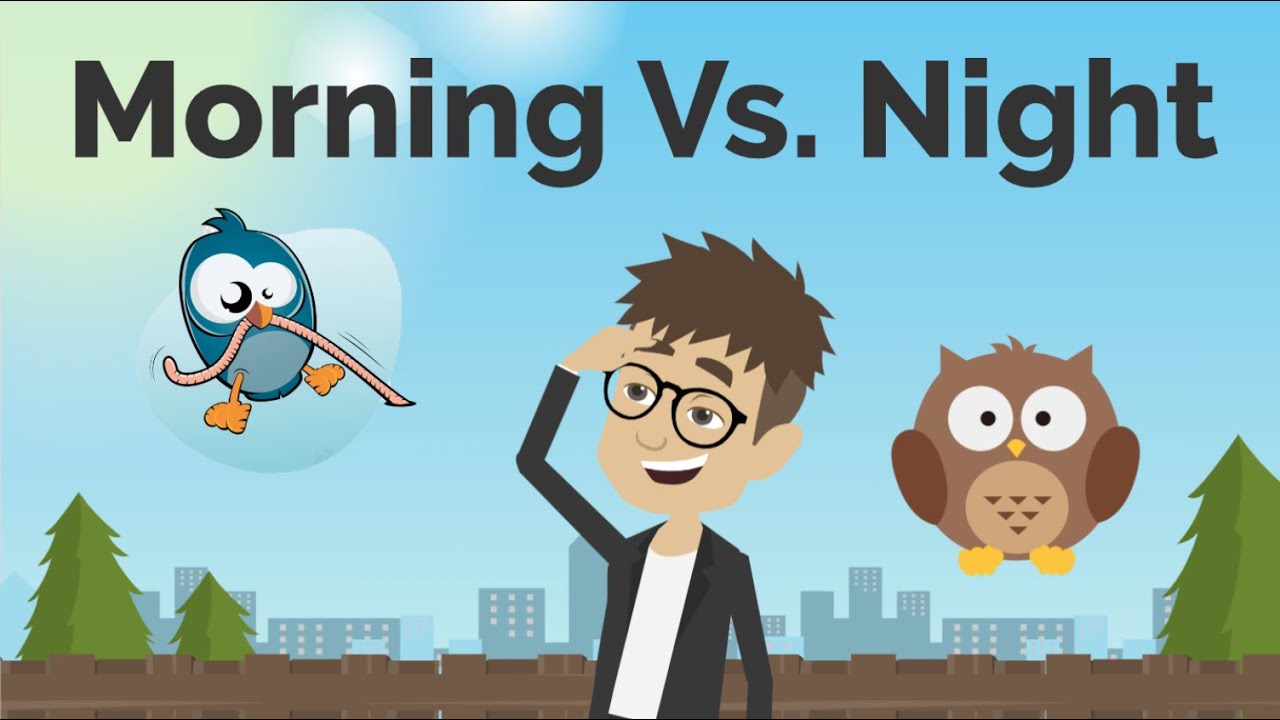
John Hawk Insunrated – Morning Person vs. Night Person is more than just a social label. It refers to your biological chronotype, the internal clock that influences energy, mood, and productivity throughout the day. Some people feel most alert as soon as the sun rises. Others only find their creative spark after dark. Your chronotype shapes not only your daily schedule but also impacts mental health, work output, and physical stamina. The key is recognizing whether your body naturally aligns with daylight or prefers the peace of nighttime. Modern science supports the idea that this isn’t a matter of choice. Genetics and lifestyle both play significant roles. Once you understand your chronotype, you can adapt your habits to match your rhythm rather than fight against it. This understanding may improve focus, sleep quality, and overall wellbeing. Knowing yourself helps you build routines that fit your nature instead of society’s demands.
The debate between Morning Person vs. Night Person is grounded in real science. Your circadian rhythm, controlled by the brain’s hypothalamus, directs your body’s cycles of alertness and rest. Morning people, often called larks, tend to wake early and perform best before noon. Night people, or owls, get energy boosts later and may struggle to sleep before midnight. These tendencies are shaped by melatonin release and body temperature changes across a 24-hour cycle. For years, society praised early risers and labeled night owls as lazy. However, researchers now understand both types have strengths and limitations. Morning people usually show strong time management while night people often excel in creative tasks. The key is to stop forcing one into the mold of the other. Instead of resisting natural rhythm, individuals should embrace it. Optimizing schedules to fit natural energy patterns brings long-term benefits in focus, productivity, and mood regulation.
“Read about: Candlelight and Calm: Ayesha Curry’s Wellness Rituals Uncovered”
Morning people often enjoy structured lifestyles and consistent routines. Waking up early allows time for exercise, meditation, or planning before the day begins. This head start often leads to better task completion and stronger mental clarity. Many morning types also experience fewer sleep disturbances because their rest aligns with natural daylight cycles. They are more likely to eat breakfast and start their day with purpose. Health professionals often recommend morning routines because they promote discipline and steady sleep hygiene. Early risers may also find it easier to balance personal and professional responsibilities. Socially, many jobs and schools favor morning schedules, giving early birds an advantage in mainstream environments. Their ability to concentrate early in the day contributes to fewer missed deadlines. These benefits make being a morning person appealing for those seeking balance, structure, and simplicity. Still, it is important to respect that not everyone functions best this way.
While morning people thrive on routine, night people often live more flexibly. Creativity often peaks during the late hours when distractions fade and thoughts flow freely. Artists, writers, and coders frequently report bursts of energy when the world sleeps. Being a night person allows for uninterrupted time to explore personal interests or complete deep work. In urban environments, nightlife offers social and cultural advantages that match a night owl’s schedule. Many night types also adapt well to shift work or freelance opportunities that break from the nine-to-five model. Although some experience sleep challenges, others enjoy solitude and deep focus at night. Their minds may wander creatively, producing original ideas without daytime pressure. While society may label night owls as unmotivated, research shows they often possess advanced problem-solving and divergent thinking skills. These traits are valuable in roles that demand flexibility and innovation. Night people bring energy to unconventional spaces.
“Read more: A Beginner’s Guide to Making Simple Nasi Goreng”
Whether you identify as a morning or night person, balance remains essential. No chronotype is superior. Each offers benefits that suit different lifestyles, careers, and goals. The challenge lies in aligning your daily responsibilities with your body’s natural timing. Morning people should avoid judging night owls as lazy. Likewise, night people should not reject structure entirely. Workplaces and schools should recognize diverse rhythms and promote flexible environments when possible. Technology enables remote work, adjusted schedules, and asynchronous collaboration. When individuals honor their rhythm, they reduce stress and improve overall performance. Morning and night people both deserve space to thrive. Learning to communicate energy needs helps relationships at home and work. It is not about changing who you are but about adjusting your world to support your best self. Whether under the morning sun or moonlit sky, you can achieve your goals with awareness and alignment.
John Hawk Insunrated – The resurgence of analog aesthetics modern creative enthusiasts is redefining how artists and collectors engage with…
John Hawk Insunrated - personal experiments that changed my approach to daily decisions have profoundly influenced my mindset and problem-solving…
John Hawk Insunrated - creativity doesn’t have complicated formulas or rules, yet many assume innovation requires complex methods. Simplifying creativity…
John Hawk Insunrated - travel inspires my creative projects by opening new perspectives, enriching experiences, and sparking innovative ideas that…
John Hawk Insunrated - curiosity plays a vital role of curiosity personal growth by motivating individuals to explore new ideas,…